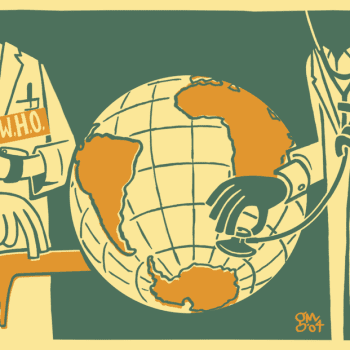Anyone who has tried to engage a member of that age cohort in an argument probably recognizes the four basic teenage tropes, which also are the only arrows in Obama’s overrated rhetorical quiver. He employed them all last week when he went to the White House briefing room to exclaim, as he is wont to do, about the excellence of the Affordable Care Act.
First came the invocation of a straw man. Celebrating the ACA’s enrollment numbers, Obama, referring to Republicans, charged: “They said nobody would sign up.” Of course, no one said this. Obama often is what political philosopher Kenneth Minogue said of an adversary — “a pyromaniac in a field of straw men.”
Adolescents also try to truncate arguments by saying that nothing remains of any arguments against their arguments. Regarding the ACA, Obama said the debate is “settled” and “over.” Progressives also say the debate about catastrophic consequences of man-made climate change is “over,” so everyone should pipe down. And they say the debates about the efficacy of universal preschool, and the cost-benefit balance of a minimum-wage increase, are over. Declaring an argument over is so much more restful than engaging with evidence.
A third rhetorical move by argumentative adolescents is to declare that there is nothing to argue about because everything is going along swimmingly. Seven times Obama asserted that the ACA is “working.” That is, however, uninformative because it is ambiguous. The ethanol program is “working” in the sense that it is being implemented as its misguided architects intended. Nevertheless, the program is a substantial net subtraction from the nation’s well-being. The same can be said of sugar import quotas, or agriculture subsidies generally, or many hundreds of other government programs that are, unfortunately, “working.”
Finally, the real discussion-stopper for the righteous — and there is no righteousness like an adolescent’s — is an assertion that has always been an Obama specialty. It is that there cannot be honorable and intelligent disagreement with him. So last week, less than two minutes after saying that the argument about the ACA “isn’t about me,” Obama said some important opposition to the ACA is about him, citing “states that have chosen not to expand Medicaid for no other reason than political spite.”
I don’t know that adolescents, in particular, always argue this way. What are some ways they do argue? (For example, saying something isn’t “Fair,” meaning, I don’t like that, without any reference to any objective standards of justice.)
We see these modes of argument, of course, all the time in internet discussions, by adults probably more than teenagers. What are some other common fallacies that we see on the internet?
















